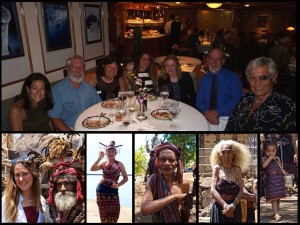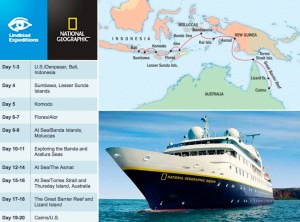The Rolex Scholarship took me to the National Geographic Orion, one of the finest expedition ships on the seas, to discover a portion of the world I had never been before. Our trip began in Bali and ended at the Great Barrier Reef, passing through Indonesia’s rich tapestry of cultures and lush tropical remote islands. We visited the place where the Komodo dragons live and snorkelled and dived at pristine coral reefs from the Moluccas to West Papua! It was for sure one of the most epic 20 days of my life!
On the first day we visited the Sumbawa Island and we had a welcome party from the local community, a traditional wedding ceremony and a buffalo race on water! It was a stupendous new experience for me. Back on the boat, we did a workshop with National Geographic photographers and one of the most unforgettable lessons was “before taking a picture of a local person, please ask them!”… Photos don’t only belong to the person who takes them but also to the person who appears on it. Respect is the key element while dealing with a different culture.
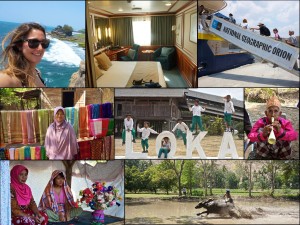
The next day I finally saw the famous massive Komodo dragons. We always kept a safe distance and our encounter short so not to disturb them. So it was a peaceful, interesting and educational encounter with one of the most powerful species of lizard of the world. The guides were locals and they told us every detail about the biology, behaviour and life cycle of these amazing animals.
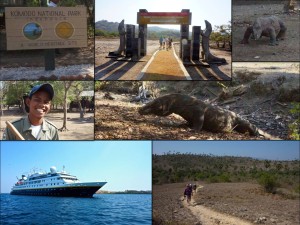
Another incredible experience was the visiting The Asmat: an ethnic group of New Guinea! It was very fun and interesting to see how the technology has penetrated their way of life. I am not sure of what I think about this image. On one hand it is cool to see that, although they are using modern technology, they still maintain their culture, their traditions, their language and their customs. On the other hand I wish they could have more opportunities to decide if they want to still living in that way or not. They seem happy but maybe that is because they don’t know any other lifestyle. But who are we to tell them how to live?… I guess we should just watch them with the same curiosity they see us and leave them alone… But at the same time I feel deeply guilty when I see their kids growing up next to trash, dirty water and with diseases which we can easily cure. I think the most important is to let them to decide and just guide them about how to achieve their own goals as a community and as an individual. From my experience I realized that the ecotourism industry is helping them to conserve their traditions and at the same time increase their live standard.
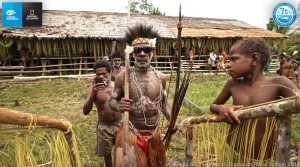
Also, visiting small Indonesian islands with the National Geographic Orion changed my perspective of the mass tourism industry. After seeing the catastrophic effects of this type of tourism in other places of the world, I thought a high amount of people stepping on a wild place was always a bad idea. Mass tourism undoubtedly contributes towards environmental degradation. Lots of people are equal to lots of trash and an inevitable damage to the environment. Also visitors tend to “corrupt” the local cultures by teaching them unsustainable ways of living. This is not new. However on this trip I learned that the problem is not the high amount of people but the way this people are managed. We were in a group of more than 100 passengers and crew members walking around small islands and, although we were for sure making an impact, our visit was very respectful towards the local communities and the wildlife. The crew was extremely responsible and they divided us into small expedition groups, all the details were well planned and the the rules were clear and strict.
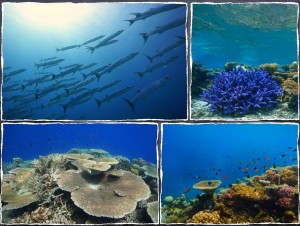
This was for sure the dream trip… and it was just unreal. We visited some of the most biodiverse places on the planet, like Triton Bay (West Papua): a magical paradise that made me feel like I was dreaming. Thank you once again Lindblad Expeditions for giving me the most rewarding and enriching experience of my life.
